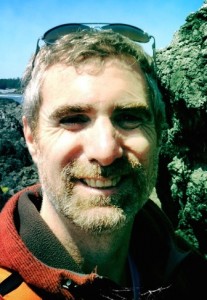
Event Description
Join us for an overview of some of the key tools you need to know to effectively engage with your stakeholders. This interactive lunch and learn will introduce you to techniques to map your relationship network, to visually communicate the social and economic impact of your research, and to frame your work in a way that resonates with the public and build closer relationships with funders. The session will also provide an opportunity for you to share with us which areas you want to learn more about in future sessions.
Before deciding on communications tools and styles, we must first understand who our stakeholders are, what their interests are and how we might reach them. Relationship network mapping provides a simple – yet powerful- way to visually map your stakeholders and identify the key leverage points for communication. After we have identified the stakeholders and understand their background, we can start to look at how we are framing our conversation.
The environmental movement often frames a debate in terms of trees versus jobs. The unfortunate part is that once this framing happens, the debate is already lost – who will choose trees over jobs? What happens if we frame the conversation around our health? Around leaving a legacy for our grandchildren? Finally, once we have a narrative frame that resonates with our stakeholders, we can identify the best visual tools for communication. Depending on whether you are trying to foster a shared understanding of the current state of the issue, ask people to imagine different future paths, or to make choices between alternative paths, there are different tools that will be most effective. Our lunch and learn will introduce these techniques with real-world case study examples that show how you can put these ideas into practice in your own work.
Facilitator: Steve Williams. President, Constructive Public Engagement
Who Should Attend?
Science researchers and practitioners that seek to strategically activate stakeholder channels to support and expand their research. Individuals with an interest in exploring and communicating the social and economic impact of their research either at the initial grant writing stage, or during the span of the project.
Event Format
This is the first offering of the Lunch & Learn Series: Stakeholder Engagement. The Lunch & Learn format is designed to provide you with a brief overview of hands-on-tools that will facilitate various aspects of communicating your work outside of the lab. This series offers a ‘menu’ of tools that g.e@UBC will develop further in workshops and modules that will be offered this fall. Although the content of some of the modules have already been selected, you will have an opportunity to request workshops on tools that you find valuable.
Date & Time
Monday, September 29, 2014
12:00pm – 1:00pm
Location
Policy Lab A and B (first floor)
Centre for Interactive Research on Sustainability
2260 West Mall
Vancouver, BC V6T 1Z4
RSVP
Registration for this event is now closed. For information on future events, please sign up to our newsletter.
 About Steve
About Steve
To do good work, you need to engage with your customers, your employees, your supporters and even your detractors. The more clearly you can articulate your goals and demonstrate your success the easier it is for you to attract the capital – social, human and financial – you need to accelerate your innovations. Helping you tell your story simply, credibly, and transparently is what Steve does with Constructive Public Engagement. Steve specializes in Corporate Social Responsibility design, evaluation, impact measurement, and data visualization for sustainability. He is a technology strategist designing and facilitating participant-driven public engagement events.
He was SAP Director of Corporate Social Responsibility, managing global technology donation and skilled volunteer programs. He has over 20 years experience in the software industry combined with years of deep engagement in the social sector including expertise in transparency, accountability, and strategic communication. Steve holds a BA in Political Science from the University of Western Ontario, an MBA in Management of Technology from Simon Fraser University, a Certificate in Community Economic Development from SFU, a Graduate Diploma in Social Innovation at the University of Waterloo and is just starting his PhD in Resource Management and Environmental Studies at UBC working with John Robinson as thesis supervisor.
View presentation slides here.

